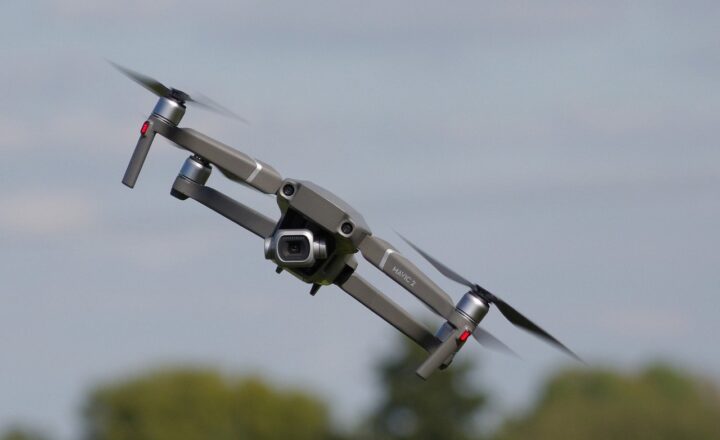Quadcopters in Real Estate: How Drones Are Transforming the Way We Buy and Sell Properties
November 14, 2024

In recent years, the advent of technology has drastically changed the landscape of various industries, and real estate is no exception. Among the emerging technologies making waves in real estate, quadcopters—or drones—are revolutionizing how properties are marketed, viewed, and sold. This article delves into the multifaceted role that drones play in the real estate market, highlighting their benefits, applications, challenges, and future prospects.
1. The Rise of Drones in Real Estate
The use of drones in real estate has its roots in aerial photography and video. Early adopters of drone technology recognized that traditional photography failed to capture the entirety and beauty of large properties or expansive landscapes. Enter quadcopters equipped with high-definition cameras:
– Accessibility: Drones can easily access hard-to-reach areas, making them ideal for showcasing sprawling estates or commercial properties.
– Cost-Effectiveness: The cost of hiring a helicopter for aerial views is prohibitive for most real estate agents, while drones offer a more budget-friendly solution with similar outputs.
– Enhanced Marketing: Aerial footage provides potential buyers with a unique perspective, offering them a more comprehensive view of the property’s surroundings.
Drones have quickly shifted from being a novelty to an essential tool in the realtor’s toolbox, prompting the industry to adopt this technology more widely.
2. Benefits of Using Drones in Real Estate
The integration of drones into real estate brings a plethora of benefits that positively impact both buyers and sellers:
– High-Quality Visuals: Drones can capture stunning, high-resolution aerial images and videos. These visuals are often more engaging than traditional photographs, making listings stand out on multiple platforms.
– Time-Efficiency: Unlike conventional methods, which may take hours or even days to yield results, drones can produce images and videos in a fraction of the time. This efficiency accelerates the marketing process.
– Wide-Reach Advertising: Drone footage can be used across various platforms, enabling realtors to promote properties on social media, websites, and during live tours, reaching a global audience.
– Property Engagement: Properties marketed with drone imagery tend to gather more views and interest. The ability to provide virtual tours enhances engagement and can lead to quicker sales.
3. Use Cases of Drones in Real Estate
The utility of drones in real estate is diverse, catering to various needs throughout the buying and selling process:
– Virtual Tours: Potential buyers can get a feel for the property without stepping inside, thanks to drone-generated virtual tours. This feature is particularly useful for those living far from the property location.
– Surveying Property Boundaries: Drones can effortlessly survey large tracts of land to determine property boundaries and evaluate land features, aiding both buyers and sellers in negotiations.
– Development Progress Monitoring: Drones are effective tools for real estate developers to monitor project progress over time, providing stakeholders with timely updates.
– Emergency and Disaster Assessment: Drones can assess properties after natural disasters, providing essential data for both insurance claims and property evaluations.
4. Key Technology Behind Drone Usage
Several technological components empower drones to function effectively in real estate:
– High-Resolution Cameras: Drones equipped with 4K cameras ensure that imagery is sharp and detailed, suitable for marketing materials.
– GPS and Autopilot Systems: These features allow drones to fly predetermined paths, capturing consistent footage, and ensuring repeatable results each time they are deployed.
– 3D Mapping Software: Such software creates detailed maps and models of real estate properties, enhancing the data provided to potential buyers.
5. Regulatory Challenges and Considerations
Despite the many advantages, the use of drones in real estate is not without its hurdles. Understanding regulations is critical:
– FAA Regulations: In the United States, all drone operators must comply with regulations set by the Federal Aviation Administration (FAA), including obtaining a Remote Pilot Certificate to fly commercially.
– Privacy Concerns: Drones may inadvertently invade the privacy of neighbors or property owners without permission. Ensuring compliance with privacy laws is essential in your drone operations.
– Insurance and Liability: Real estate agents must review insurance policies concerning drone operations to safeguard against potential liabilities.
6. The Future of Drone Technology in Real Estate
As drone technology continues to evolve, the real estate industry is likely to benefit even further:
– Improved Automation: The future may see drones equipped with AI technology capable of navigating and capturing images autonomously.
– Augmented Reality Integration: Combining drone footage with augmented reality can provide immersive experiences for potential buyers, allowing them to visualize properties with existing or proposed features.
– Market Growth: The number of real estate professionals using drones is growing, suggesting that drones will become a standard in the industry rather than an exception.
In summary, quadcopters are not merely a passing trend in real estate; they are a transformative force shaping the future of how properties are marketed and sold. As technology continues to enhance capabilities, the possibilities are endless for what can be achieved with drones in the real estate sector.
Conclusion
The introduction of drones into the real estate market has opened up new avenues for creativity and efficiency. By providing high-quality visuals and innovative marketing strategies, drones are not just enhancing real estate sales; they’re redefining them. As the technology advances and regulations adapt, the potential for drones in real estate will only increase, making them an indispensable tool for buyers, sellers, and agents alike.
In embracing this technology, the real estate sector can ensure that it is not only keeping pace with technological advancements but also paving the way for a more transparent, efficient, and dynamic marketplace.







